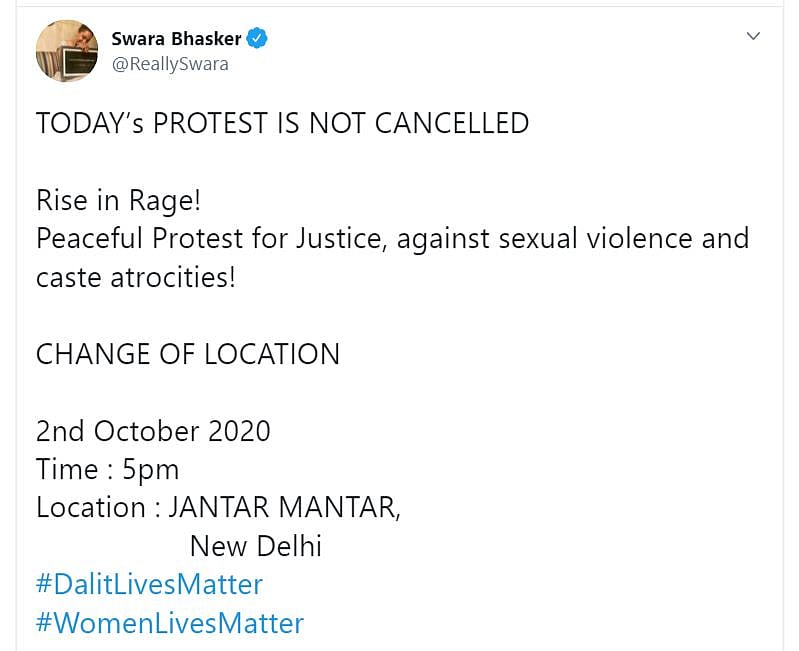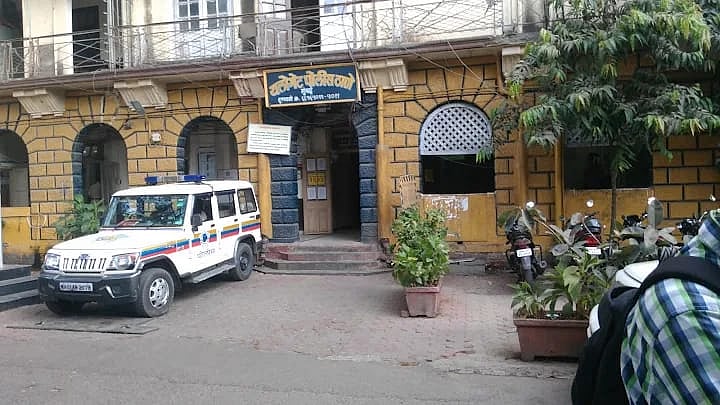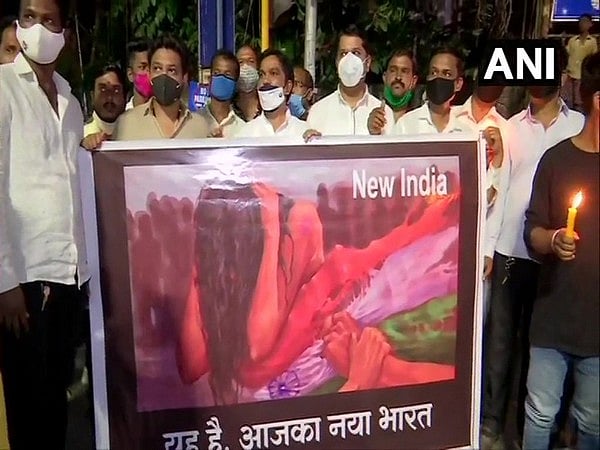India is in the middle of a pandemic. While the Health Ministry has on many occasions highlighted the country's high recovery rate and relatively low fatality rate, it must be remembered that the pandemic continues to be present across the country. As per official data from this morning, India has 9,42,217 active COVID-19 cases. Of these, 26,738 active cases are in the national capital alone.
We mention this because, in light of the recent incident that saw a young Dalit girl allegedly raped and murdered by several individuals in Uttar Pradesh, a protest has been organised. This will take place at 5 pm at the Jantar Mantar, and the call to action has been sounded by many including actor Swara Bhasker.

But whatever be the reason, can you legally protest at present? Given the current situation due to COVID-19, the answer varies from place to place. While containment zones continue to be off limits, Unlock 4.0 had brought in some relaxations. And as such, social/academic/sports/entertainment/ cultural/ religious/political functions and other congregations are now permitted in the national capital of Delhi with a ceiling of 100 people.
This can only be done with strict social distancing and safety measures in place.
As such, the organisers would have to ensure that the numbers are kept limited, or that the protesters do not all congregate at one place in order to remain within the permitted guidelines. But the open invite that has been issued by several well known figures indicates that no such rule is being followed.
With the Epidemic Diseases Act in place, any violation would be an offence punishable under section 188 of the Indian Penal Code (45 of 1860). As we saw a day earlier, Congress leaders Rahul and Priyanka Gandhi had had a case filed against them as they attempted to travel to Hathras. They, along with about 200 other people, had had cases filed against them under Section 188, 269 and 270 of Indian Penal Code (IPC) and the Epidemic Act.
What do these sections say?
Section 188 pertains to the disobedience of an order that is duly promulgated by a public servant who is empowered to do so. If their disobedience causes any obstruction, they can be punished with imprisonment of up to one month and a fine that may extend to two hundred rupees, or with both. However, if their actions cause a situation that is dangerous to human life, health or safety, or leads to a riot etc, they can be punished with imprisonment of up to six months and a fine that may extend to one thousand rupees, or with both.
Note that if prohibitory orders are imposed in an area, any gathering would indeed be in direct violation of an order given by a public servant.
Section 269 pertains to any negligent act that is likely to spread infection of disease dangerous to life. Such acts are punishable with imprisonment up to six months, with fine, or with both.
Section 270 deals with malignant acts that are likely to spread infection of disease dangerous to life — such as COVID-19. It is an offense punishable with up to two years of imprisonment or with a fine, or with both.
It must also be noted that those seeking justice for the Hathras victims are not the only people flocking to the Jantar Mantar area. Those clamouring for justice for late actor Sushant Singh Rajput are already in the area. And if social media posts are any indication, social distancing norms, as well as precautionary measures such as wearing masks have been tossed aside. This, as well as the sheer number of people in the area does not bode well for the protesters.





